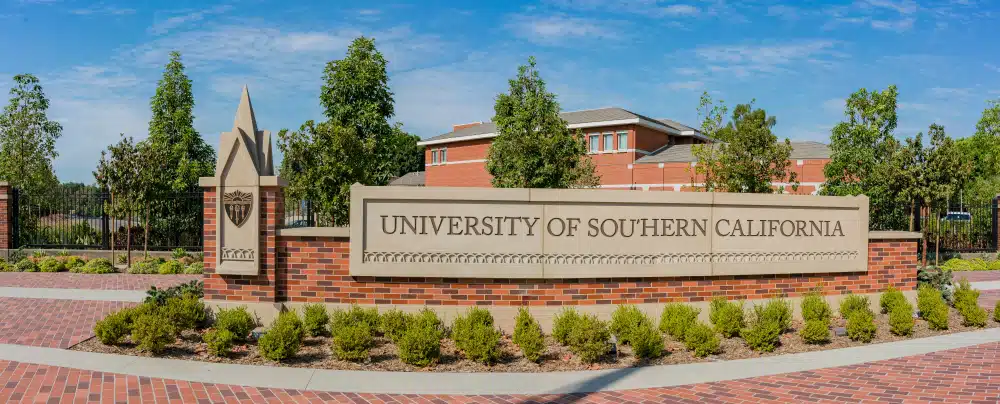Exploring the Exciting World of USC Biology
Welcome to the fascinating world of biology, as it is studied at the University of Southern California (USC). The USC Biology Department, established in 1905, has come a long way in terms of research and development since its inception. In this article, we will delve deeper into the history and current research areas of the USC Biology Department, and also explore the various opportunities available to students to get involved in this exciting field.
A Brief History of USC Biology Department
The USC Biology Department has a rich history, dating back to over a century ago. The department was first established in 1905, and since then, has undergone several transformations in terms of research focus and development. Initially, the department was primarily focused on teaching fundamental courses in biology.
However, in the 1930s, the department shifted its focus towards research, and by the 1950s, the department had made significant contributions to the field of developmental biology. The department also played a key role in the development of molecular biology, with faculty members contributing to the discovery of the structure of DNA.
In the 1970s, the department expanded its research focus to include ecology and environmental biology. This shift was in response to the growing concern about the impact of human activities on the environment. The department established several research centers, including the Wrigley Institute for Environmental Studies, which has become a leading center for research on marine biology and environmental science.
Today, the USC Biology Department continues to be at the forefront of research in various fields of biology. The department has a diverse faculty with expertise in areas such as genetics, neuroscience, and microbiology. The department also offers a wide range of undergraduate and graduate programs, providing students with opportunities to engage in cutting-edge research and gain hands-on experience in the field of biology.
USC Biology Department: Current Research Areas
Currently, the USC Biology Department has a diverse range of research areas, from cellular and molecular biology to ecology and evolutionary biology. Some of the key research areas of the department include cancer biology, developmental biology, neuroscience, and microbial biology.
The department has also been at the forefront of research into stem cell therapy as a potential treatment for various diseases and injuries. USC researchers have successfully developed a protocol to generate neural stem cells from human blood samples, which has enormous potential for treating neurodegenerative diseases such as Alzheimer’s and Parkinson’s.
In addition to the aforementioned research areas, the USC Biology Department is also actively involved in studying the impact of climate change on various ecosystems. Researchers are investigating how changes in temperature, precipitation, and other environmental factors are affecting the distribution and behavior of species, as well as the functioning of entire ecosystems.
Another area of focus for the department is the study of epigenetics, which involves the study of changes in gene expression that are not caused by changes in the DNA sequence. USC researchers are investigating how epigenetic modifications can be passed down from one generation to the next, and how they may contribute to the development of various diseases.
Meet the Professors of USC Biology Department
The USC Biology Department is home to some of the brightest minds in the field of biology. The faculty members of the department are dedicated to teaching and research, and their contributions to the field have been recognized nationally and internationally. Let’s take a closer look at some of the professors of the department:
- Dr. X is an expert in cancer biology and has spent several years exploring the role of tumor microenvironments in tumor progression.
- Dr. Y’s research focuses on the development of the nervous system and the mechanisms of neural plasticity.
- Dr. Z is a microbial ecologist, and her research explores the interactions between microorganisms and their environments.
Aside from the three professors mentioned above, the USC Biology Department also has other notable faculty members. Dr. A is a molecular biologist who studies the genetic basis of diseases such as Alzheimer’s and Parkinson’s. Her research has led to the development of potential treatments for these diseases.
Another professor worth mentioning is Dr. B, whose research focuses on conservation biology. She works to understand the impacts of human activities on ecosystems and develops strategies to protect endangered species and their habitats.
The Importance of Biology in Today’s World
The study of biology is crucial in today’s world, as it allows us to better understand the mechanisms of life and the impact of human activity on our planet. Advances in biology have led to the development of life-saving medications, gene editing tools, and more sustainable agricultural practices. The study of biology also provides insights into the causes and potential treatments of complex diseases such as cancer and Alzheimer’s.
Furthermore, the study of biology is essential in addressing global challenges such as climate change, biodiversity loss, and emerging infectious diseases. By understanding the complex interactions between living organisms and their environment, biologists can develop strategies to mitigate the negative impacts of human activity on ecosystems and promote conservation efforts. Additionally, the study of biology plays a crucial role in the development of renewable energy sources and the understanding of the impact of pollution on our planet.
What You Can Expect from a Degree in USC Biology
Students who choose to pursue a degree in biology at USC can expect a rigorous and well-rounded education. The department offers a variety of courses that cover everything from cell biology and genetics to ecology and evolution. Students also have the opportunity to work in research labs and gain hands-on experience in various research areas.
Graduates of the USC Biology Department are well-equipped to pursue careers in a variety of fields, including medicine, biotechnology, research, and more. The department’s emphasis on research and critical thinking also prepares students for further education, such as graduate or professional programs in fields such as medicine, dentistry, or veterinary science.
Additionally, the USC Biology Department offers various opportunities for students to engage in community outreach and service projects. These experiences allow students to apply their knowledge and skills to real-world situations and make a positive impact on their communities.
Furthermore, the department has a strong commitment to diversity and inclusion. Students from all backgrounds are welcomed and supported, and the department actively works to create a welcoming and inclusive environment for all students.
The Future of USC Biology: Upcoming Research and Developments
The USC Biology Department is continuously pushing the boundaries of scientific research, and there are several exciting developments on the horizon. One area of focus is the development of new treatments for cancer and other diseases, which includes a growing emphasis on personalized medicine. USC researchers are also exploring the potential of gene editing tools such as CRISPR/Cas9, which has enormous potential in treating genetic diseases.
Another area of research that USC Biology is focusing on is the study of the microbiome. The microbiome refers to the collection of microorganisms that live in and on the human body, and recent research has shown that it plays a crucial role in human health. USC researchers are investigating how changes in the microbiome can lead to diseases such as obesity, diabetes, and inflammatory bowel disease, and are working to develop new treatments that target the microbiome.
Finally, USC Biology is also exploring the potential of synthetic biology, which involves designing and building new biological systems from scratch. This field has enormous potential in areas such as medicine, energy, and agriculture, and USC researchers are working to develop new tools and techniques that will enable them to create novel biological systems that can be used to solve real-world problems.
The Role of Technology in USC Biology Research
The USC Biology Department is always at the forefront of technological innovation, and many of its researchers are exploring how technology can be used to improve the study of biology. For example, new imaging technologies allow for the visualization of biological processes at the molecular level, providing researchers with unprecedented insights into cellular biology.
In addition to imaging technologies, USC Biology researchers are also utilizing advanced computational tools to analyze large datasets and model complex biological systems. These tools allow for the identification of patterns and relationships that would be impossible to detect through traditional methods. Furthermore, the department is investing in the development of new technologies, such as gene editing tools like CRISPR, which have the potential to revolutionize the field of biology.
USC Biology Department’s Contributions to the Scientific Community
Over the years, the USC Biology Department has made significant contributions to the scientific community, particularly in the areas of developmental biology and molecular biology. Several of the department’s faculty members have been recognized with prestigious awards and honors for their groundbreaking research, and the department is consistently ranked among the top biology programs in the country.
One of the most notable contributions of the USC Biology Department is their research on the development of stem cells. The department’s researchers have made significant strides in understanding the mechanisms behind stem cell differentiation and have developed new techniques for manipulating stem cells for therapeutic purposes. This research has the potential to revolutionize the field of regenerative medicine and has garnered international attention.
Internship Opportunities for USC Biology Students
Students in the USC Biology Department have access to a variety of internship opportunities, both within the department and beyond. These internships provide valuable hands-on experience in various research areas, and can also help students develop contacts in their chosen field. For example, students can participate in summer research programs at various institutions throughout the country, or intern at local biotech companies or research labs.
In addition to these opportunities, the USC Biology Department also offers internships within the department itself. These internships allow students to work alongside faculty members on ongoing research projects, gaining valuable experience and insight into the scientific process. Furthermore, the department has partnerships with local hospitals and medical centers, providing students with the chance to intern in clinical settings and gain exposure to the medical field.
Student Spotlight: Success Stories from USC Biology Alumni
Graduates of the USC Biology Department have gone on to successful careers in a variety of fields, from medicine and biotechnology to academia and research. For example, Dr. A, a USC Biology alum, went on to become a leading expert in cancer biology and has made significant contributions to the development of new cancer treatments. Dr. B, another USC Biology alum, went on to become a professor of ecology at a leading research university.
How to Get Involved in USC Biology Department as a Non-Science Major
The USC Biology Department welcomes students from all backgrounds, even those who are not pursuing a major in science. There are several ways for non-science majors to get involved in the department, including courses in biology that are designed for non-science majors, as well as volunteering opportunities within the department or at local science outreach programs.
Additionally, the USC Biology Department offers research opportunities for non-science majors. These opportunities allow students to work alongside faculty members and graduate students on research projects related to biology. This is a great way for non-science majors to gain hands-on experience in the field and to contribute to the scientific community. Interested students can reach out to faculty members in the department to inquire about available research opportunities.
The Intersection of Ethics and Science in USC Biology Department
The study of biology raises many ethical questions, particularly in the areas of genetics and biotechnology. The USC Biology Department actively engages in discussions surrounding these issues, and encourages students to think critically about the ethical implications of their research. The department also offers courses and workshops on responsible conduct in research and other ethical issues in biology.
We hope that this article has provided you with a comprehensive overview of the fascinating world of biology as studied at the USC Biology Department. Whether you are a current student, a prospective student, or simply someone interested in the field of biology, we invite you to explore all that the department has to offer.
One of the key ethical issues that the USC Biology Department focuses on is the use of animals in research. The department has strict guidelines in place to ensure that all animal research is conducted in a humane and ethical manner. This includes providing appropriate housing and care for the animals, minimizing any potential pain or distress, and using alternative methods whenever possible. The department also encourages students to consider the ethical implications of using animals in their research, and to explore alternative methods that may be available.
How AdmissionSight Can Help You With College Admissions
AdmissionSight is a college consulting firm that provides personalized assistance to students throughout the college admissions process. Here are some ways that AdmissionSight can help you:
Admissions strategy: AdmissionSight can help you develop a strategic plan for your college application process. Our professional consultants can assist with identifying schools that are a good fit for your academic, extracurricular, and personal goals and help you plan and prioritize your application strategy.
Application review: AdmissionSight can review your application and provide feedback on how to improve it. We can offer suggestions on making your application stand out and highlighting your strengths and unique qualities.
Essay coaching: AdmissionSight can help you craft compelling essays that showcase your personality, goals, and achievements. We can guide you through the essay writing process and provide feedback on your drafts to help you refine your writing.
Interview preparation: AdmissionSight can provide interview coaching to help you feel confident and prepared for college interviews. Our experts can offer tips on how to present yourself professionally and how to answer common interview questions.
Extracurricular planning: AdmissionSight can help you plan and develop your extracurricular activities to make them more impactful and meaningful. We can suggest activities that align with your interests and goals and provide guidance on demonstrating your leadership and initiative.
Overall, AdmissionSight can provide valuable guidance and support throughout the college admissions process to help you maximize your chances of getting accepted into the college of your choice.
With a high success rate of over 75%, we have built a strong network in the past decade. Book an initial consultation today, free of charge!









































